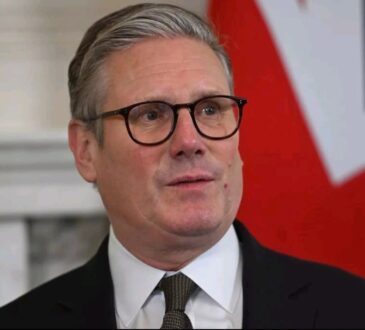Keir Starmer Pushes for Cutting Red Tape to Boost UK Growth, Sparking Concerns Over Weaker Regulations

Sir Keir Starmer has asked UK regulators to get rid of rules that may stop businesses from investing, saying this will help the economy grow. However, some people worry that this could weaken important protections that keep businesses and industries fair and safe.
On Christmas Eve, Starmer sent a letter to key regulators like Ofgem (which oversees energy), Ofwat (water industry regulator), and the FCA (financial regulator).
In the letter, he told them to focus on making it easier for businesses to grow by cutting unnecessary rules. Some critics, though, argue that this approach risks creating what they call a “race to the bottom,” where the UK lowers its standards too much just to attract investment.
This move is part of Starmer’s bigger plan to boost the UK’s economy. But official reports show that in the early months of Labour’s leadership, there hasn’t been much economic growth. Some people believe that focusing on cutting rules is a distraction from more serious problems in the economy, like trade barriers and structural issues caused by Brexit.
Naomi Smith, who leads the group Best for Britain, said that while growing the economy is very important, simply cutting rules isn’t the best way to do it. She explained that businesses need clear and stable rules to feel confident about investing.
Smith also pointed out that Brexit has created trade barriers with the European Union, which has made goods more expensive for consumers. Her group believes that Starmer should focus on fixing the UK’s relationship with the EU, as it would bring bigger and longer-lasting benefits to the economy.
Even with these criticisms, Starmer has said he will stick to his plan to reduce rules that block growth. At an International Investment Summit, he made it clear that his main goal is to encourage investment in areas like housing, infrastructure, and technology. He promised, “If any rules are slowing down growth, we will remove them.”
Right now, most regulators already follow a law introduced in 2017 that asks them to support economic growth. However, Starmer’s request adds more pressure on these agencies to act faster.
This push for deregulation has already caused some disagreements. For example, in the financial sector, government ministers have had arguments with the FCA about how to make the UK more competitive without compromising important protections.
While Starmer’s plans aim to make Britain more attractive to investors, some experts worry that rushing to cut rules could lead to unintended consequences, especially in industries that need strong oversight.
Starmer’s strategy has sparked a debate about whether focusing on cutting red tape is the right way to grow the economy or if deeper, long-term solutions—like fixing trade with the EU—are needed to make real progress.




